Our live coverage of Russia's war in Ukraine has moved here.
February 26, 2023 Russia-Ukraine news
By Tara Subramaniam, Andrew Raine, Sophie Tanno, Matt Meyer, Maureen Chowdhury and Mike Hayes, CNN
Zelensky fires Ukraine's commander of joint forces
From Kostan Nechyporenko in Kyiv
Ukraine’s commander of joint forces operation has been dismissed from his post, President Volodymyr Zelensky announced in a decree Sunday.
Major Gen. Eduard Mykhailovich Moskalov had been appointed to the position last March when Lt. Gen. Oleksandr Pavliuk was appointed head of the Kyiv region military administration.
Zelensky did not provide an explanation for Moskalov's dismissal, but it's the latest in a long line of recent leadership changes made by his administration.
Ukrainian authorities have conducted a series of anti-corruption searches and crackdowns across the country, and a variety of high-profile firings have followed.
It is not yet clear if Moskalov's firing was connected to the recent corruption purge.
US presidential hopeful Ron DeSantis' stance on arming Ukraine has shifted since his days as a lawmaker
From CNN's Em Steck, Andrew Kaczynski and Olivia Alafriz
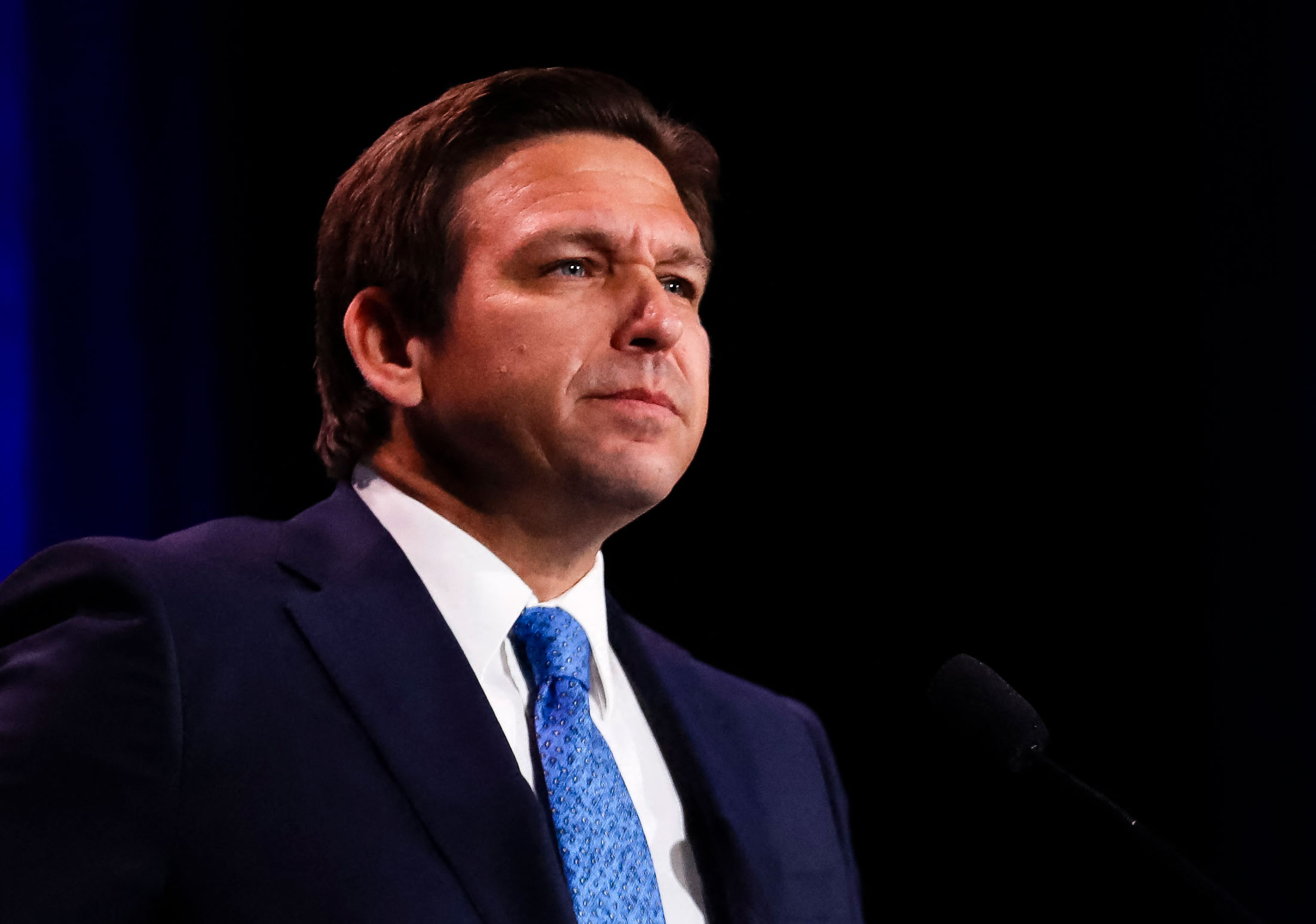
Florida Gov. Ron DeSantis once strongly supported arming Ukraine to fight Russia, urging then-President Barack Obama to do so as a deterrent to Russian aggression in eastern Europe – a position at odds with his statements this week questioning the United States’ involvement in the conflict.
As a conservative congressman, DeSantis, now a likely presidential hopeful, urged sending “defensive and offensive” weapons to Ukraine in 2014 and 2015, according to a review of his past comments by CNN’s KFile. He also voted to refuse to fund a new missile defense treaty with Russia until they withdrew from Ukraine.
Once an advocate of a hardline, hawkish approach to Russia by supporting Ukraine, the Florida governor shifted course this week in anticipation of a potential presidential run, where he will vie for the nomination of a changed, more isolationist Republican party.
In new comments, the Florida governor criticized what he called a "blank check" approach to aid for Ukraine, and questioned whether it was in the United States’ interest to remain involved if the conflict came down to “things like the borderlands or over Crimea.”
In comparison to China, DeSantis said Russia was not “the same threat to our country, even though they’re hostile” and downplayed the threats that Russia could invade NATO countries.
DeSantis’ foreign policy pivot from being a self-described follower of the “Reagan school” of foreign policy to a more Trumpian worldview comes as the Republican Party’s voting base has grown increasingly isolationist.
A recent poll from Pew Research Center shows 40% of Republican and Republican-leaning independent voters now believe the US is providing too much support for Ukraine, up from 9% last year.
A CNN KFile review of DeSantis’ past comments and actions found that DeSantis consistently supported sending aid to Ukraine and condemned the Russian annexation of Crimea in 2014 and 2015 and as late as 2017.
Analysis: How the situation in Moldova mirrors Russia's moves before invading Ukraine
Analysis by CNN's Rob Picheta
Tensions are mounting in Moldova, a small country on Ukraine’s southwestern border, where Russia has been accused of laying the groundwork for a coup that could drag the nation into the Kremlin’s war.
Moldovan President Maia Sandu has accused Russia of using “saboteurs” disguised as civilians to stoke unrest amid a period of political instability, echoing similar warnings from Ukrainian President Volodymyr Zelensky.
Russian President Vladimir Putin has meanwhile baselessly accused Kyiv of planning its own assault on a pro-Russian territory in Moldova, where Moscow has a military foothold.
What is Russia planning? Despite Moscow’s pleas of innocence, its actions regarding Moldova bear a striking resemblance to moves it made ahead of its annexation of Crimea in 2014, and its full-scale invasion of Ukraine last year.
On Tuesday, Putin revoked a 2012 foreign policy decree that in part recognized Moldova’s independence, according to Reuters.
Then on Thursday, Russia’s Ministry of Defence accused Ukraine of “preparing an armed provocation” against Moldova’s pro-Russian separatist region of Transnistria “in the near future,” state media TASS reported.
No evidence or further details were offered to support the ministry’s accusation, and it has been rubbished by Moldova.
But the claim has put Western leaders on alert, coming almost exactly a year after Putin made similar, unsubstantiated claims that Russians were being targeted in the Donbas – the eastern flank of Ukraine where Moscow had supported militant separatists since 2014 – allowing him to cast his invasion of the country as an issue of self-defense.
Russia's existing foothold in the country: Central to Russia’s interests in Moldova is Transnistria, a breakaway territory on the eastern flank of the country that has housed Russian troops for decades.
The territory – a 1,300 square mile enclave on the Dniester River – declared itself a Soviet republic in 1990, opposing any attempt by Moldova to become an independent state or to merge with Romania after the disintegration of the Soviet Union.
When Moldova became independent the following year, Russia quickly inserted itself as a so-called “peacekeeping force” in Transnistria, sending troops in to back pro-Moscow separatists there.
War with Moldovan forces ensued, and the conflict ended in a deadlock in 1992. Transnistria was not recognized internationally, even by Russia, but Moldovan forces left it a de facto breakaway state. That deadlock has left the territory and its estimated 500,000 inhabitants trapped in limbo, with the government in Chișinău holding virtually no control over it to this day.
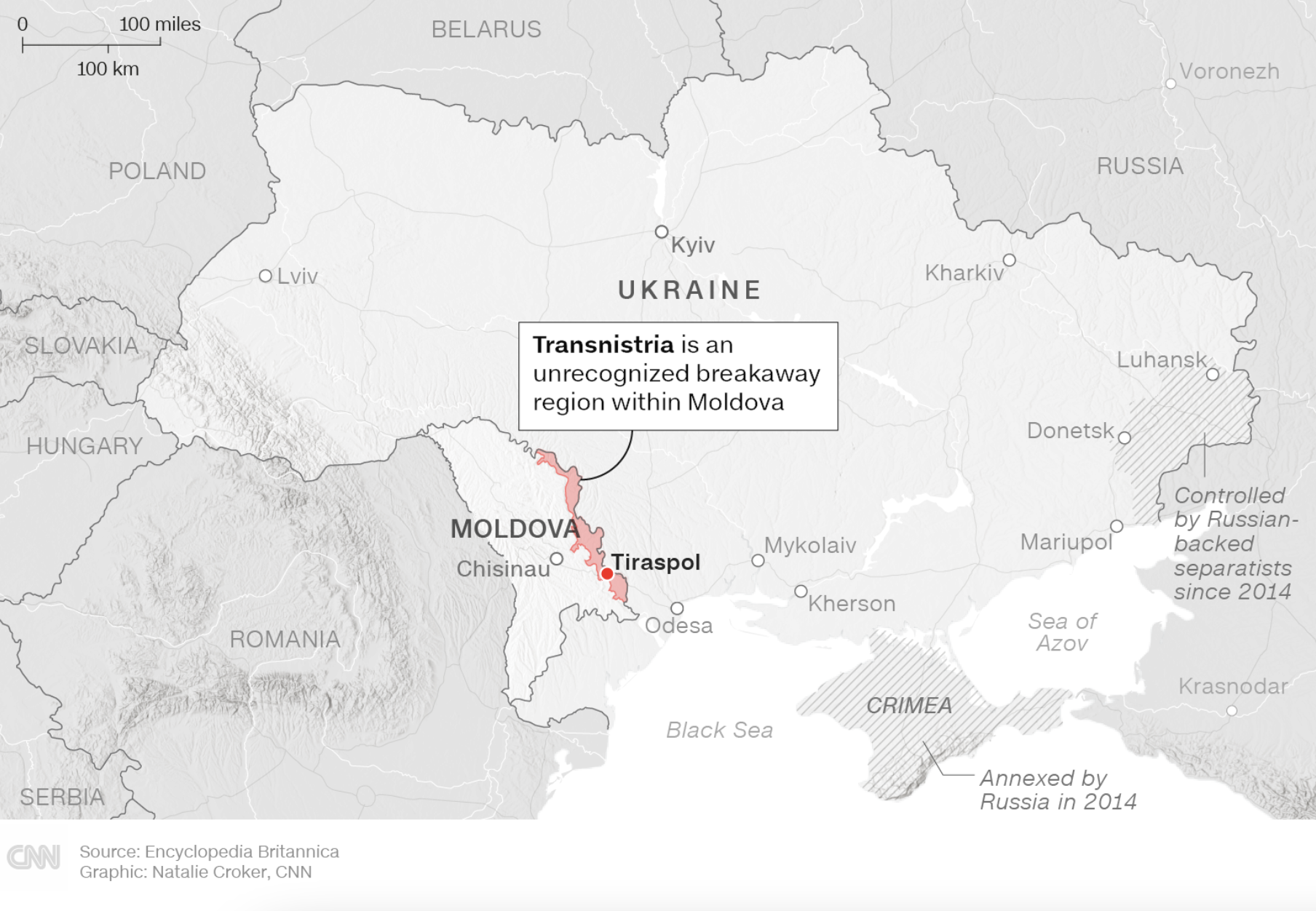
Saudi foreign minister makes first visit to Kyiv in 30 years, signing off on $400 million aid package
From Kostan Nechyporenko in Kyiv
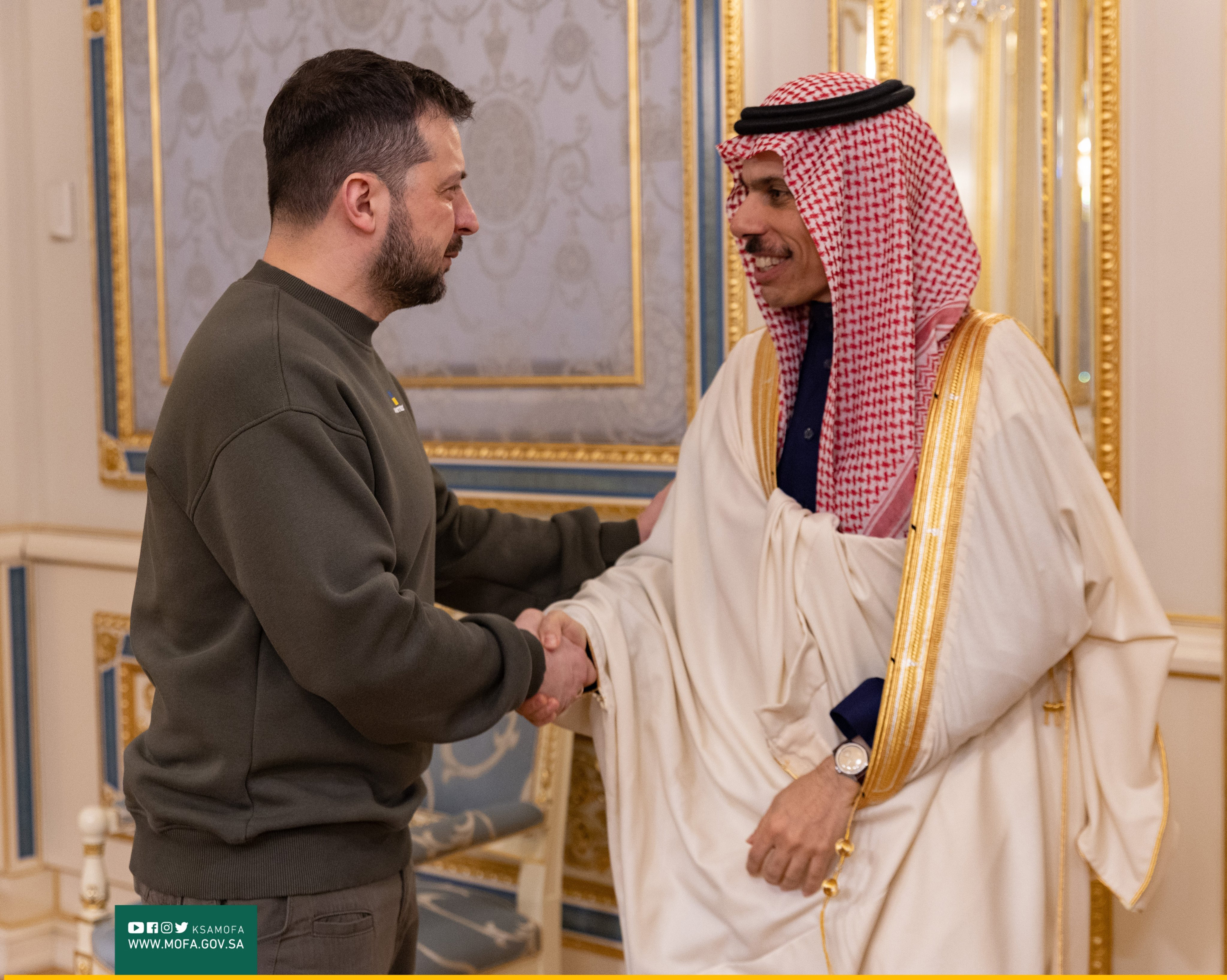
For the first time since the two countries established diplomatic relations 30 years ago, a Saudi foreign minister has visited Ukraine.
President Volodymyr Zelensky's office released a video of him meeting Saudi Arabia's Prince Faisal bin Farhan Al Saud on Sunday.
Zelensky said he expected the meeting would "provide a new impetus to further intensification of our mutually beneficial dialogue."
"Thank you for supporting peace in Ukraine, our sovereignty, and territorial integrity," he continued. "This is very important for us and our society."
Saudi Arabia has steered a neutral course in the conflict. The Kingdom mediated a prisoner exchange last year, in which two American and five British citizens were released from Russian detention.
Andriy Yermak, head of the Ukrainian presidential office, called the meeting successful in a message on Telegram.
"Ukraine will receive real help from Saudi Arabia," the Ukrainian official said. "The Presidential Office signed two documents formalizing a $400 million aid package to Ukraine: $100 million in humanitarian aid and $300 million in oil products."
"Ukraine and Saudi Arabia have common challenges and experiences in dealing with them. We are talking about Iranian UAVs (unmanned aerial vehicles, or drones) that were supplied to certain 'rebels' and attacked Saudi oil facilities," Yermak said, in a reference to the use of Iranian drones by Houthi forces in Yemen.
"Since last year, the same Iranian UAVs have been in possession of Russian terrorists and have been attacking Ukraine's energy infrastructure."
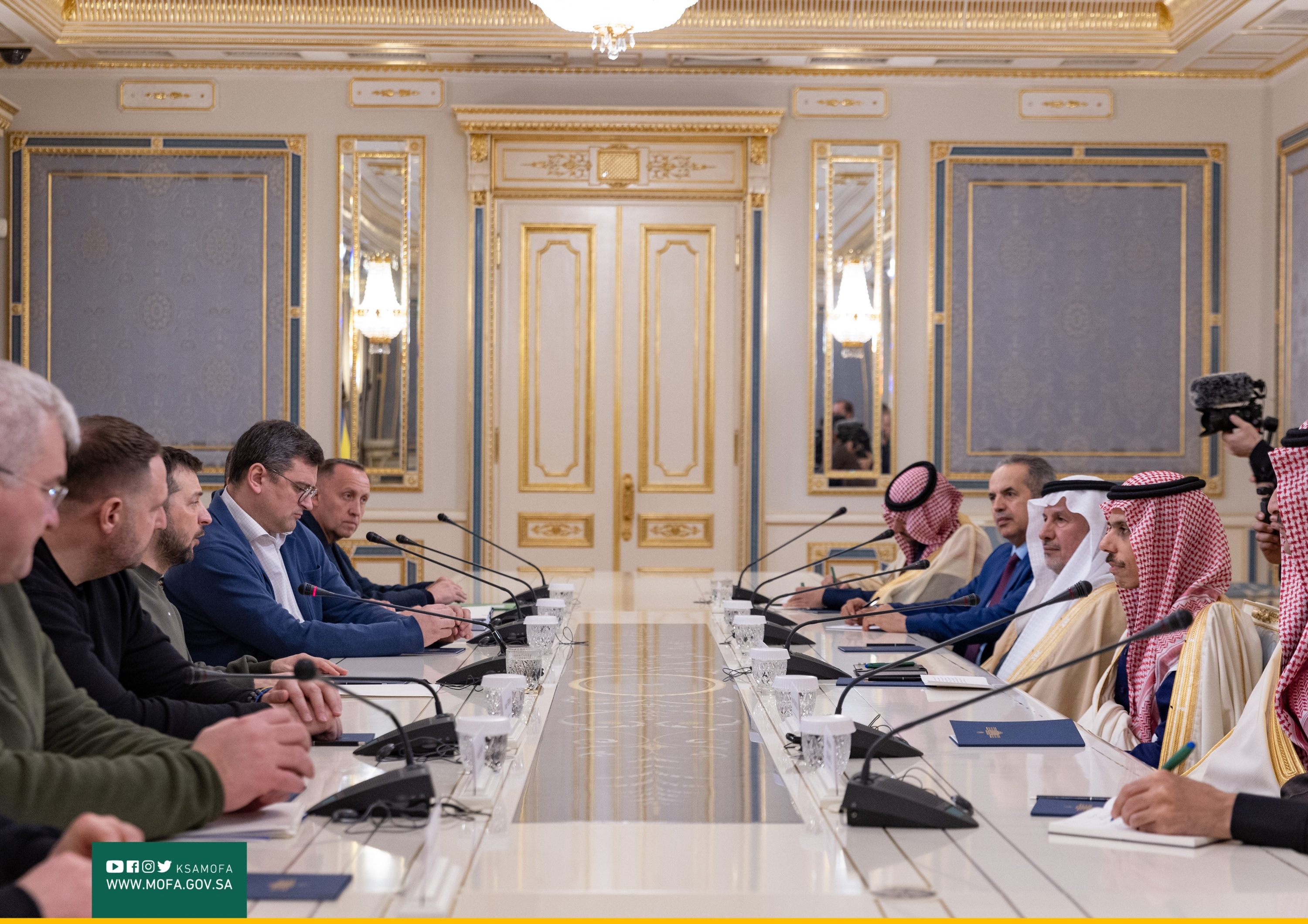
CIA director says there's evidence Russia offered to help Iran's missile program in exchange for military aid
From CNN’s Sam Fossum
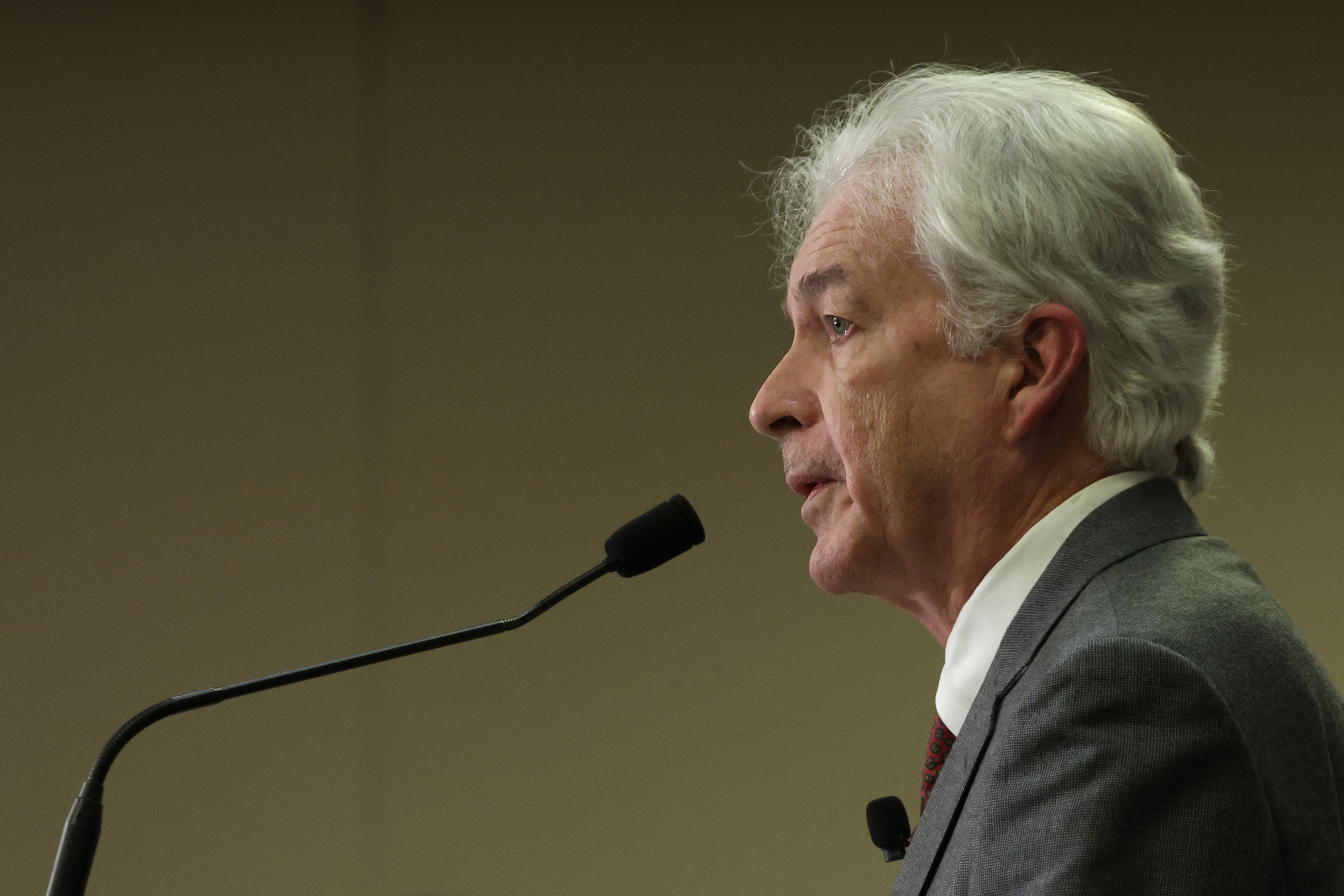
Director of the US CIA William Burns said in an interview Sunday that the alliance between Russia and Iran is developing rapidly, an emerging narrative that he called "disturbing."
"It's moving at a pretty fast clip in a very dangerous direction right now, in the sense that we know that the Iranians have already provided hundreds of armed drones to the Russians, which they're using to inflict pain on Ukrainian civilians and Ukrainian civilian infrastructure. We know that they've provided, you know, ammunition for artillery and for tanks as well," Burns said on CBS' "Face the Nation."
Burns said the CIA is also seeing signs that Russia is proposing to help the Iranians on their missile program, and at least considering the possibility of providing fighter aircraft to Iran, in exchange for military aid in their ongoing invasion.
Meeting with Russia's spy chief: Burns also described his conversation with the director of Russia's Foreign Intelligence Service, and said Russian President Vladimir Putin is "too confident" in his ability to grind down Ukraine.
He called the discussion with Naryshkin "pretty dispiriting," but said he got some key points across.
"My goal was not to talk about negotiations. That's something that Ukrainians are going to need to take up with the Russians when they see fit. It was to make clear to Naryshkin — and through him, to President Putin — the serious consequences should Russia ever choose to use a nuclear weapon of any kind as well. And I think Naryshkin understood the seriousness of that issue, and I think President Putin has understood it as well," Burns said.
Asked why the conversation was dispiriting, Burns added: "There was a very defiant attitude on the part of Mr. Naryshkin as well, a sense of cockiness and hubris, reflecting Putin's own view — his own belief today that he can make time work for him, that he believes he can grind down the Ukrainians, that he can wear down our European allies, that political fatigue will eventually set in."
US Congress will prioritize advanced weapons systems for Ukraine, House Foreign Affairs chairman says
From CNN’s Sam Fossum
In an interview Sunday, US House Foreign Affairs Committee Chairman Michael McCaul urged President Joe Biden's administration to provide more advanced weapons systems to Ukraine, and said Congress would take steps to move the process along.
McCaul warned critics of US support for Ukraine that "we can't put our head in the sand."
"We can certainly write into our appropriations bills, prioritizing weapons systems. We intend to do that," McCaul said on "ABC This Week," when asked what Congress can do to push the Biden administration on providing longer-range missile systems or fighter jets.
"I know the administration says, 'As long as it takes,'" the Texas Republican said, regarding how long US support would last. "I think with the right weapons, it shouldn't take so long."
McCaul said he believed the US could have already been doing more to speed up a conclusion to the conflict.
Biden and senior administration officials have said "for now" Ukraine doesn't require advanced fighter jets, and the US has rebuffed Ukrainian entreaties for long-range Army Tactical Missile Systems over concerns they could be used by Ukraine to hit targets deep inside Russia.
McCaul said he recently spoke with Chairman of the Joint Chiefs of Staff Gen. Mark Milley, and that nothing is off the table right now.
"I think with enough pressure from Congress on both sides of the aisle, we can get into Ukraine what they really need to win this fight," the lawmaker said.
As far-right Republican criticism grows over the US' continued support of Ukraine, and some saying the White House should be spending more energy on domestic crises like the train derailment in East Palestine, Ohio, McCaul said the US can walk and chew gum at the same time.
"I think that's a false choice. I think the president should have gone to (East) Palestine where we have this major chemical spill, but it doesn't mean we disregard what's happening — this struggle for the global balance of power that we're facing right now," McCaul said.
"We can't put our head in the sand and ignore this. Otherwise, the Russians will be at the Polish border and Chairman Xi will invade Taiwan. I think we can do both. We're a great nation."
The brutal fight for Bakhmut has turned to urban combat as forces battle for every inch of territory
From CNN's Tim Lister
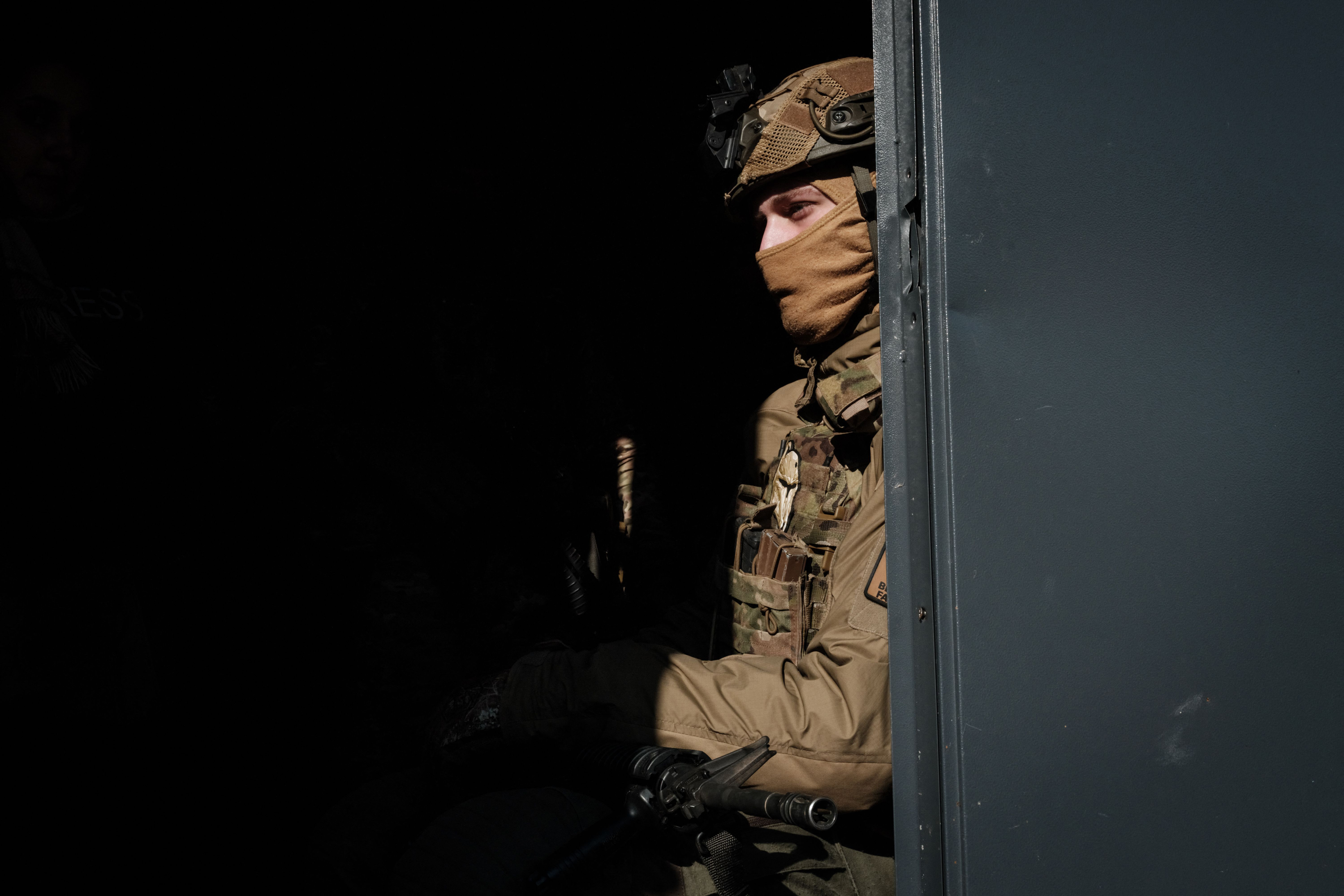
There is one thing that Russian and Ukrainian accounts agree upon: The fighting around the eastern city of Bakhmut is relentless, and the casualties — on both sides — are high.
A fierce fight in the streets: Until a few weeks ago, the battle was waged largely with tanks, artillery and mortars. But Bakhmut has increasingly become a field of urban combat, with every street and building in the suburbs and surrounding villages contested.
Russian forces — including fighters from the Wagner private military company — have edged toward the center of the city from the east, south and north.
Ukrainian units have launched frequent counter-attacks to try to reclaim some territory and preserve their precarious access to Bakhmut from the west. That access has become gradually more complicated as routes into the city have come under control of Russian forces.
Ukrainian soldiers on unofficial social media accounts have said they are increasingly reliant on dirt roads to reach — and leave — Bakhmut, tracks that may become impassable as the frost turns to mud.
Russia aims to encircle Ukraine's troops: Rather than drive directly toward the city center, Wagner groups have sought to surround the city in a wide arc from the north. In January, the groups claimed the nearby town of Soledar, and have since taken a string of villages and hamlets north of Bakhmut.
That process appears to have gone a step further in recent days, with Wagner apparently reaching the village of Yahidne immediately to the northwest of Bakhmut. The village sits on a route that, until recently, was used by Ukrainians to get in and out of the city.
The next target for the Russians could be the town of Chasiv Yar, a straggling collection of Soviet-era apartment blocks, sitting on high ground which has already been extensively damaged. Ukrainian officials said it came under artillery fire again Sunday.
How long will Ukraine defend the city? The conundrum for the Ukrainian military is whether it remains feasible to continue defending Bakhmut.
At the beginning of February, Ukrainian President Volodymyr Zelensky said, "No one will surrender Bakhmut. We will fight as long as we can. We consider Bakhmut our fortress."
More recently, in an interview with Italian media, Zelensky's tone was slightly different. “It is important for us to defend (Bakhmut), but not at any price and not for everyone to die,” he was quoted as saying.
If Bakhmut can no longer be held, it will be important to note where Ukrainians choose to draw their next defensive lines. The cities of Kostiantynivka and Kramatorsk are not far to the west of Bakhmut and have already registered an uptick in Russian missile attacks.
For now, there's no sign of a withdrawal of Ukrainian units from the Bakhmut area, and the brutal fighting wears on.
White House official won't say whether the US will support Ukraine retaking Crimea
From CNN’s Jasmine Wright
US national security adviser Jake Sullivan would not say whether the Biden administration would support Ukraine if it decides victory against Russia requires retaking Crimea.
Sunday marks the ninth anniversary of Russia’s annexation of the peninsula.
“What ultimately happens with Crimea, in the context of this war and a settlement of this war, is something for the Ukrainians to determine with the support of the United States,” Sullivan told CNN’s Dana Bash on "State of the Union." “But I'm just not going to get into hypothetical questions. Because what we're facing today is a counteroffensive in the east, in the south, that we need to give them the tools to fight. And we are doing that.”
Asked directly if the US would help Ukraine take back Crimea, Sullivan punted again on NBC’s "Meet the Press," repeating that the most critical thing right now is supplying Ukraine with the tools to take back territory in the south and east.
Asked by Bash on CNN to level with the American people on how long the war will last, Sullivan said: “War is unpredictable.”
He reiterated US President Joe Biden’s Friday statement that the administration was ruling out providing F-16 fighter jets “for now.” Sullivan would not say whether the US would provide jets down the line.
On China, Sullivan told Bash that the US has still not seen Beijing make a final decision on whether to provide Russia lethal aid for the war. He also declined to detail what consequences China would face if they made such a move.
“President Biden has said previously, we're not just making direct threats. We're just laying out both the stakes and the consequences, how things would unfold and we are doing that clearly — and specifically behind closed doors,” he said.



